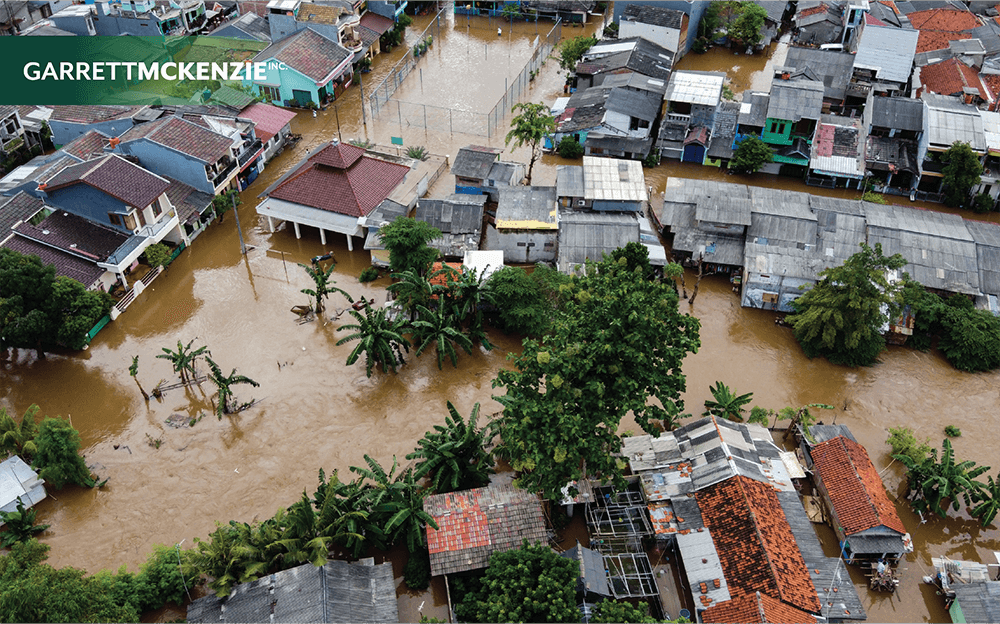With heavy rains, power outages, hail, flooding and water damage,
violent weather can wreak havoc on your business in a short period of
time. When these fast-moving, highly localized storms move through
your region, correct preparation is key for an effective emergency
response.
Could your business survive a natural disaster? If you’re unsure, now is
the time to find out before you are faced with a devastating loss of
property and income. These 5 tips will help safeguard your business for
the next emergency or natural disaster.
1. Develop a Response Plan in Advance
Preparation is crucial to successfully surviving a disaster. Create a
written plan that details your company’s actions in case of possible
natural disasters and communicate it to all employees. Your written plan
should include:
- Evacuation routes
- Escape procedures
- Emergency phone numbers
- Physical locations where the clear instructions can be found
Establish a plan for continuing to operate remotely while a professional
remediation company works to get your business back in working order
and safe for all employees to return.
2. Review Your Insurance Coverage
While investing in the proper insurance coverage can’t prevent a natural
disaster, it can ensure your business is ready for recovery. In addition to
coverage for your business property, insurance packages such as
business interruption, loss of use, and extended coverage will help
protect against closures or the interruption of your operations.
3. Establish a Communication Plan
Lost or damaged property can always be replaced, but losing loyal
customers due to a temporary shutdown could be much more
devastating. Stay in touch with customers throughout the emergency by
contacting them via phone, email or social media, and by posting a
closure notice outside your property if possible.
Your employees should also be aware of your communication plan so
they can reach you, coworkers, vendors and clients during and after an
emergency. Communication tasks should be assigned to specific staff
members. As the owner, you should lead the communication efforts by
appointing a spokesperson, a client point-of-contact, and an employee
responsible for contacting the insurance company.
4. Protect Your Company’s Data
If your business processes electronic transactions or stores important
customer information in a customer relationship management database,
backing up your data to a cloud-based platform is imperative. Natural
disasters can wipe out more than trees and homes – they also have the
power to destroy office systems, documents, and critical business
records.
Regularly backing up files to a reliable hard drive can suffice as long as
you store a recent copy in a safe place off-site. Migrating business
information to the cloud is a better option. That way your employees can
access ongoing projects or important documents remotely, and your data
will be backed-up to a server that’s affected by the immediate weather
conditions.
5. Identify Critical Tools and Relationships
Even after your business survives a natural disaster, you may still
experience a significant loss due to suppliers’ inability to make deliveries.
Business owners should communicate their emergency procedures to
key vendors and make sure everyone is kept informed during a disaster.
Maintaining strong relationships and clear communication with
employees, vendors, and customers offers business owners a support system
they need to effectively navigate the recovery process.
You may not be able to prevent the next fire, flood or hurricane
that strikes your region, but with a thorough plan in place,
you can at least minimize the damage and
be prepared to reopen your business as quickly as possible.
Being informed about disaster clean up and response after a storm is
important when it comes to restoring your business and getting your feet
back on the ground. Making sure you have the right remediation
company to step in and manage the disaster clean up should be one of
your top priorities.


Recent Comments